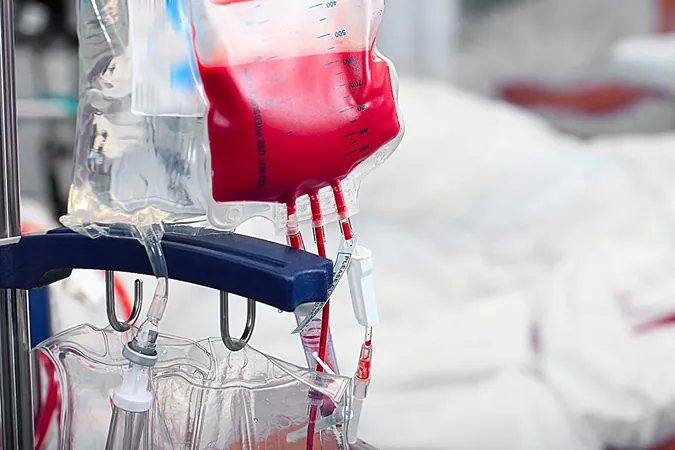
Critical Study Reveals Risks of Low Hemoglobin Thresholds for Blood Transfusion in Heart Attack Patients!
2024-10-01
Introduction
In a groundbreaking study published on October 1 in the Annals of Internal Medicine, researchers have discovered alarming evidence suggesting that lower hemoglobin thresholds for blood transfusion in patients suffering from acute myocardial infarction (MI) and anemia could significantly elevate the risks of death or recurrent heart attacks within 30 days.
Study Overview
Led by Gerard T. Portela, Ph.D., from the University of Pittsburgh, the research is a secondary analysis of the Myocardial Ischemia and Transfusion (MINT) trial, which was conducted across 144 medical sites in six countries. The comprehensive study included data from a staggering 3,492 participants who faced the dual challenge of acute MI and anemia.
Findings
The findings reveal a concerning trend: the 30-day risk of death or recurrent MI rose as hemoglobin thresholds decreased. Specifically, the risks were recorded at 14.8% for a threshold of <10 g/dL, escalating to 15.1% for <9 g/dL, 15.9% for <8 g/dL, and peaking at 18.3% for a <7 g/dL strategy. This suggests that each incremental lowering of the hemoglobin threshold is linked to increased risks for these vulnerable patients.
Caution in Recommendations
While the researchers observed these trends, they also cautioned that the wide confidence intervals surrounding their estimates prevent them from making definitive recommendations regarding specific hemoglobin transfusion thresholds. Thus, the study leaves medical professionals with critical questions about how best to manage transfusions in this at-risk population.
Implications for Clinical Practice
As heart disease continues to be the leading cause of death globally, this study brings to light a pressing need for revised guidelines in transfusion practices—one that could potentially save lives. The implications of these findings are significant and could pave the way for more individualized patient care strategies.
Conclusion
Stay tuned for more updates on this crucial research that could reshape transfusion protocols and improve outcomes for heart attack patients struggling with anemia!



 Brasil (PT)
Brasil (PT)
 Canada (EN)
Canada (EN)
 Chile (ES)
Chile (ES)
 España (ES)
España (ES)
 France (FR)
France (FR)
 Hong Kong (EN)
Hong Kong (EN)
 Italia (IT)
Italia (IT)
 日本 (JA)
日本 (JA)
 Magyarország (HU)
Magyarország (HU)
 Norge (NO)
Norge (NO)
 Polska (PL)
Polska (PL)
 Schweiz (DE)
Schweiz (DE)
 Singapore (EN)
Singapore (EN)
 Sverige (SV)
Sverige (SV)
 Suomi (FI)
Suomi (FI)
 Türkiye (TR)
Türkiye (TR)